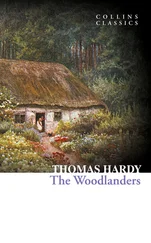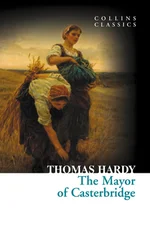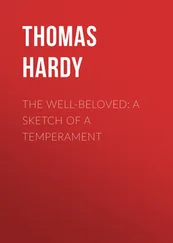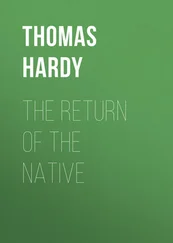
"A sweet, saintly, Christian business, hers!" thought he.
Her presence here was now fairly enough explained, her skill in work of this sort having no doubt been acquired from her father's occupation as an ecclesiastical worker in metal. The lettering on which she was engaged was clearly intended to be fixed up in some chancel to assist devotion.
He came out. It would have been easy to speak to her there and then, but it seemed scarcely honourable towards his aunt to disregard her request so incontinently. She had used him roughly, but she had brought him up: and the fact of her being powerless to control him lent a pathetic force to a wish that would have been inoperative as an argument.
So Jude gave no sign. He would not call upon Sue just yet. He had other reasons against doing so when he had walked away. She seemed so dainty beside himself in his rough working-jacket and dusty trousers that he felt he was as yet unready to encounter her, as he had felt about Mr. Phillotson. And how possible it was that she had inherited the antipathies of her family, and would scorn him, as far as a Christian could, particularly when he had told her that unpleasant part of his history which had resulted in his becoming enchained to one of her own sex whom she would certainly not admire.
Thus he kept watch over her, and liked to feel she was there. The consciousness of her living presence stimulated him. But she remained more or less an ideal character, about whose form he began to weave curious and fantastic day-dreams.
Between two and three weeks afterwards Jude was engaged with some more men, outside Crozier College in Old-time Street, in getting a block of worked freestone from a waggon across the pavement, before hoisting it to the parapet which they were repairing. Standing in position the head man said, "Spaik when he heave! He-ho!" And they heaved.
All of a sudden, as he lifted, his cousin stood close to his elbow, pausing a moment on the bend of her foot till the obstructing object should have been removed. She looked right into his face with liquid, untranslatable eyes, that combined, or seemed to him to combine, keenness with tenderness, and mystery with both, their expression, as well as that of her lips, taking its life from some words just spoken to a companion, and being carried on into his face quite unconsciously. She no more observed his presence than that of the dust-motes which his manipulations raised into the sunbeams.
His closeness to her was so suggestive that he trembled, and turned his face away with a shy instinct to prevent her recognizing him, though as she had never once seen him she could not possibly do so; and might very well never have heard even his name. He could perceive that though she was a country-girl at bottom, a latter girlhood of some years in London, and a womanhood here, had taken all rawness out of her.
When she was gone he continued his work, reflecting on her. He had been so caught by her influence that he had taken no count of her general mould and build. He remembered now that she was not a large figure, that she was light and slight, of the type dubbed elegant. That was about all he had seen. There was nothing statuesque in her; all was nervous motion. She was mobile, living, yet a painter might not have called her handsome or beautiful. But the much that she was surprised him. She was quite a long way removed from the rusticity that was his. How could one of his cross-grained, unfortunate, almost accursed stock, have contrived to reach this pitch of niceness? London had done it, he supposed.
From this moment the emotion which had been accumulating in his breast as the bottled-up effect of solitude and the poetized locality he dwelt in, insensibly began to precipitate itself on this half-visionary form; and he perceived that, whatever his obedient wish in a contrary direction, he would soon be unable to resist the desire to make himself known to her.
He affected to think of her quite in a family way, since there were crushing reasons why he should not and could not think of her in any other.
The first reason was that he was married, and it would be wrong. The second was that they were cousins. It was not well for cousins to fall in love even when circumstances seemed to favour the passion. The third: even were he free, in a family like his own where marriage usually meant a tragic sadness, marriage with a blood-relation would duplicate the adverse conditions, and a tragic sadness might be intensified to a tragic horror.
Therefore, again, he would have to think of Sue with only a relation's mutual interest in one belonging to him; regard her in a practical way as some one to be proud of; to talk and nod to; later on, to be invited to tea by, the emotion spent on her being rigorously that of a kinsman and well-wisher. So would she be to him a kindly star, an elevating power, a companion in Anglican worship, a tender friend.
But under the various deterrent influences Jude's instinct was to approach her timidly, and the next Sunday he went to the morning service in the Cathedral church of Cardinal College to gain a further view of her, for he had found that she frequently attended there.
She did not come, and he awaited her in the afternoon, which was finer. He knew that if she came at all she would approach the building along the eastern side of the great green quadrangle from which it was accessible, and he stood in a corner while the bell was going. A few minutes before the hour for service she appeared as one of the figures walking along under the college walls, and at sight of her he advanced up the side opposite, and followed her into the building, more than ever glad that he had not as yet revealed himself. To see her, and to be himself unseen and unknown, was enough for him at present.
He lingered awhile in the vestibule, and the service was some way advanced when he was put into a seat. It was a louring, mournful, still afternoon, when a religion of some sort seems a necessity to ordinary practical men, and not only a luxury of the emotional and leisured classes. In the dim light and the baffling glare of the clerestory windows he could discern the opposite worshippers indistinctly only, but he saw that Sue was among them. He had not long discovered the exact seat that she occupied when the chanting of the 119th Psalm in which the choir was engaged reached its second part, In quo corriget , the organ changing to a pathetic Gregorian tune as the singers gave forth:
Wherewithal shall a young man cleanse his way?
It was the very question that was engaging Jude's attention at this moment. What a wicked worthless fellow he had been to give vent as he had done to an animal passion for a woman, and allow it to lead to such disastrous consequences; then to think of putting an end to himself; then to go recklessly and get drunk. The great waves of pedal music tumbled round the choir, and, nursed on the supernatural as he had been, it is not wonderful that he could hardly believe that the psalm was not specially set by some regardful Providence for this moment of his first entry into the solemn building. And yet it was the ordinary psalm for the twenty-fourth evening of the month.
The girl for whom he was beginning to nourish an extraordinary tenderness was at this time ensphered by the same harmonies as those which floated into his ears; and the thought was a delight to him. She was probably a frequenter of this place, and, steeped body and soul in church sentiment as she must be by occupation and habit, had, no doubt, much in common with him. To an impressionable and lonely young man the consciousness of having at last found anchorage for his thoughts, which promised to supply both social and spiritual possibilities, was like the dew of Hermon, and he remained throughout the service in a sustaining atmosphere of ecstasy.
Читать дальше













